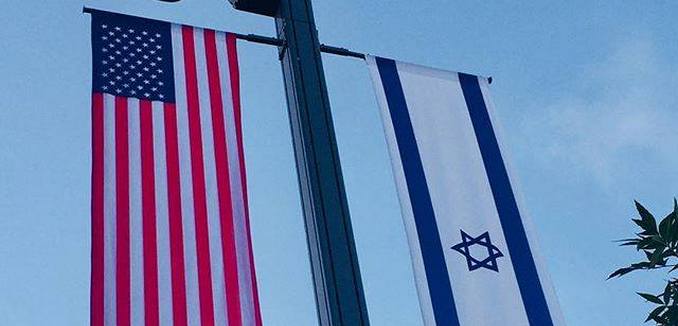The move of the United States embassy to a Jerusalem complex, most of which is “is located on the far side of the armistice line” that divided the city between 1949 and 1967, shows that the United States accepts Israel contention that its capital city should be undivided, Eugene Kontorovich wrote in an op-ed published Sunday in The Wall Street Journal.
The move of the embassy shows, not only that the U.S. accepts Jerusalem as Israel’s capital, but accepts Israel’s contention, in line with “bipartisan calls from Congress,” that its capital is unified.
The division between so-called “West” and “East” Jerusalem, Kontrovich, who is a director at the Kohelet Policy Forum, and a professor at George Mason University’s Antonin Scalia Law School, explained, has its origin in a “unique demand” made of Israel.
Following the capture by Israel of the sections of Jerusalem that had been occupied by Jordan at the time Israel’s founding, the international community demanded that Israel “had to keep the areas under its control, including East Jerusalem and the Old City, free of Jewish inhabitants.”
But this imbued the 1949 armistice lines, which, according to international law, are temporary, with a degree of permanence. The establishment of the “Green Line” as a border beyond which Jews would not be allowed to settle, Kontorovich wrote, was both “unique and illiberal.”
By ignoring the armistice line with the embassy move, the U.S. has shown “that it attaches no legal significance to this outdated demarcation.” It means that the U.S. accepts Israeli control over its whole capital including the Old City, and, more generally, recognizes that Israel could have sovereignty over the Green Line.
Additionally, Kontrovich added that accepting Israeli sovereignty in what is called East Jerusalem or the West Bank in no way contradicts the idea that Israel could cede those territories in the context of a peace agreement with the Palestinians.
Toward the end of his article, Kontorovich observed the implication of the U.S. action, showing that it rejects the idea that Israel is an “occupier.” “Other countries may soon follow, just as they are now announcing their intention to recognize Jerusalem,” Kontorovich wrote.
While only two other countries have so far announced their intent to move their embassies to Jerusalem, 32 nations from around the world signaled their intent to attend the inauguration of the American embassy in Jerusalem.
Angola, Cameroon, Democratic Republic of Congo, Republic of Congo, Ivory Coast, Ethiopia, Kenya, Nigeria, Rwanda, South Sudan, Zambia and Tanzania, from Africa said that their envoys would attend, The Times of Israel reported. From Latin America, Paraguay, Guatemala, the Dominican Republic, El Salvador, Honduras, Peru and Panama said that their ambassadors would attend the ceremony. Guatemala and Paraguay have announced their intent to follow the U.S. lead and move their embassies to Jerusalem by the end of this month.
Albania, Georgia, Ukraine, the Czech Republic, Hungary, Romania, and Serbia from Central and Eastern Europe also planned to attend. From Western Europe, only Austria was represented.
Over the weekend Czech Republic, Hungary and Romania blocked a European Union statement condemning the move of the U.S. embassy to Jerusalem.
[Photo: U.S. Department of State / Facebook]




